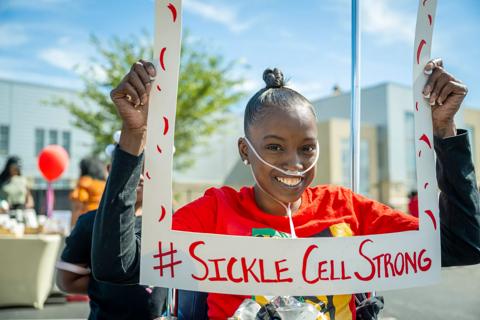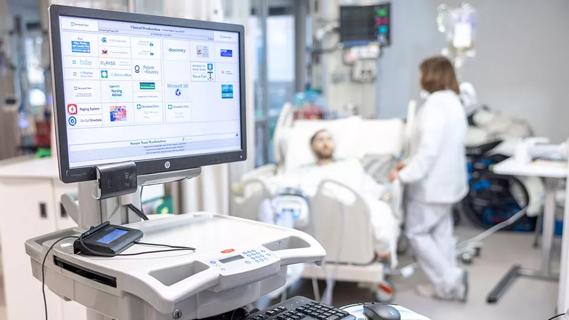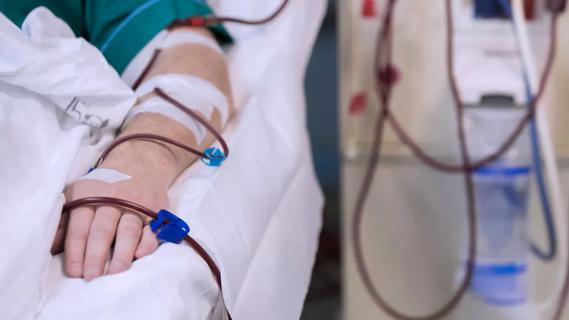Expansion of responsibilities helps patients, clinicians

By Dana Longo, MPH, NP, and Hadley Wood, MD
Advertisement
Cleveland Clinic is a non-profit academic medical center. Advertising on our site helps support our mission. We do not endorse non-Cleveland Clinic products or services. Policy
In 2015, the Department of Urology in Cleveland Clinic’s Glickman Urological & Kidney Institute transformed its patient clinics to benefit patients and staff.
Previously, the majority of our advanced practice providers (APPs) — nurse practitioners and physician assistants — were practicing within a physician practice. Their roles included seeing patients before and after surgery as well as assisting with clinics, scheduling, routine patient care and phone calls. In 2014, we began to shift our model to one in which APPs are at the front lines, providing high-quality urological care in our main campus and community facilities independent from physician practices.
The shift in practice not only demonstrates Cleveland Clinic’s commitment to utilize APPs to their full capability, but also follows a 2010 Institute of Medicine recommendation that nurses should “practice to the full extent of their education and training.” The change has created more appointment slots for patients, increased access to physicians’ clinics for more complex or surgical cases and, most importantly, increased APPs’ job satisfaction.
The transition wasn’t simple or quick. The Department of Urology began considering the shift after surveying our APPs in 2013. It was apparent that the members of the urology advanced practice team had a strong desire to see and manage their own patients.
While the advanced practice group represented decades of urology care experience, many APPs had “islands” of excellence from practicing in highly specialized clinics but had a relative lack of experience in more fundamental areas.
Advertisement
To address this, the team created an educational program that included reading, assessment and didactic lectures that covered all aspects of general urology. Each module was delivered at two-week intervals to provide enough time for the group to engage in self-directed learning.
In addition, the team worked closely to identify geographical areas where access needed to be expanded and paired APPs with physician mentors to continue on-the-ground training. These relationships not only fostered ongoing education but promoted acceptance of the new team members in their expanded roles and encouraged further collaboration among physicians and APPs.
We also incorporated a quality review program into our efforts. This program involved external review of randomly selected patient charts for accuracy of clinical decision-making, documentation and billing. The reviews were then shared with the appropriate APP to provide an opportunity for review and reflection.
This shift represented a substantial cultural change in our department for physicians, nurses, administrative personnel and the advanced practice team. It has not been without challenges. Ultimately, however, through teamwork and good communication, our care model now integrates physicians and advanced practice providers in a fairly seamless fashion. The American Urological Association has decided to adopt Cleveland Clinic’s APP education program as the official online education program for the association’s nurse practitioner and physician assistant members.
Advertisement
Ms. Longo is a nurse practitioner in the Glickman Urological & Kidney Institute’s Department of Urology.
Dr. Wood is a staff member of the Urological & Kidney Institute’s Center for Genitourinary Reconstruction and an Assistant Professor of Surgery at Cleveland Clinic Lerner College of Medicine.
Advertisement
Advertisement

Nurses play key role in comprehensive lifetime treatment program

Customized bots improve speed, efficiency by streamlining daily clinical, clerical tasks

Nurses play pivotal role in patients’ ability to recover in the comfort of their own homes

New protocol reduces costs, increases patient and caregiver satisfaction

Advocating for patient safety is imperative in fast-paced surgical settings

M-Power program improves the perinatal experience for people who have survived abuse

Advice for those pursuing a WOC nursing career

Veteran nurse shares his experience as a caregiver and community volunteer